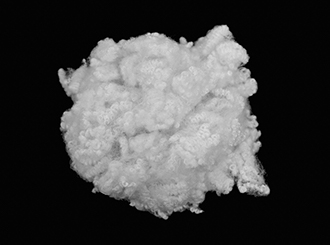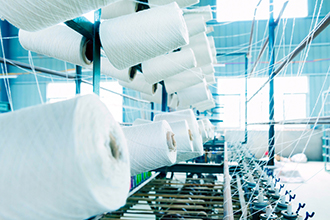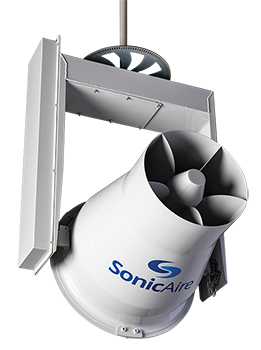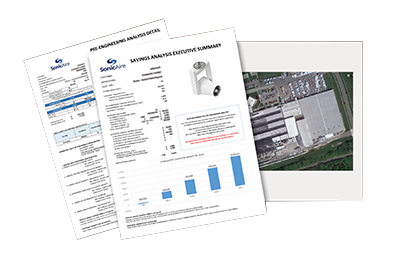The U.S. textiles supply chain employs more than 550,000 people. As of 2016, annual capital expenditures for this industry were topping $2 billion, and in 2017, the U.S. shipped nearly $78 billion in textiles and apparel to markets worldwide. With so much invested in the textile market and its products, protection of textiles supply chain personnel is crucial.
To that end, safety organizations such as OSHA (Occupational Safety and Health Administration) and NFPA (National Fire Protection Association) encourage textile facility owners and managers to put measures in place to protect the employees and facilities that are the backbone of this industry.
Accomplishing this goal requires acknowledging and alleviating high risks that are present in the textile industry.
Risk of Fire & Explosion: High

A major contributor to these fire risks is combustible dust.
Combustible Dust Risk: High
OSHA lists the textile industry among those industries that are susceptible to explosive dusts, and the Health and Safety Executive, which “aims to reduce work-related death, injury and ill health,” notes that wool dust and cotton dust are susceptible to explosions.
-U.S. Chemical Safety Board
Why the risk? The conditions in textile and nonwovens facilities generate combustible dust clouds which can lead to deadly explosions. One type of highly combustible dust is textile dust, such as that produced by cotton and nylon. As materials are processed and products are created, cotton fly and other dusts can quickly accumulate in work areas.
Textile dust collects on difficult-to-reach (therefore difficult-to-keep-clean) areas such as rafters and other overhead structures and gathers as a cloud in the air. When an ignition source is present (a spark from a conveyor belt, heat from steaming, etc.), the combustible dust can explode, and the surrounding materials can help to rapidly spread the fire.
These incidents are more common than many realize. The U.S. Chemical Safety Board reports that 111 combustible dust incidents occurred between 2006 and 2017, resulting in 66 fatalities and 337 injuries.
Potential to Mitigate Risk: High
Fortunately, solutions are available to allow textile facility operators to reduce their risk. One of the best methods is good housekeeping. By preventing the accumulation of combustible dust, business owners and managers can prevent combustible dust events in textile facilities.
Of course, some housekeeping methods are more effective than others. For high-impact results that meet NFPA 652 requirements, textile facility owners are turning to the innovative solution offered by industrial dust control fans. Supplied by SonicAire, these fans use BarrierAire™ technology to help prevent combustible dust from accumulating.
This solution combines two methods to control dust flow. The fans use thermal-current control to prevent nautral upward currents from holding dust in the air, and they apply high-velocity airflow to keep overhead areas clean and prevent dust build up.
The result is a cleaner facility that offers a safer and healthier environment for textile workers.
The SonicAire Solution
Industrial dust control fans offer a proactive solution for your textile facility. As the global leader in combustible dust control, SonicAire can partner with you to recommend the ideal fan system for your operations. Our dedicated team can provide a customized solution specific to your location. We deliver innovative engineering designs that can help prevent dangerous dust explosions at your facility.
To start reaping the benefits of industrial dust control fans, contact SonicAire for your personally engineered solution and quote.



